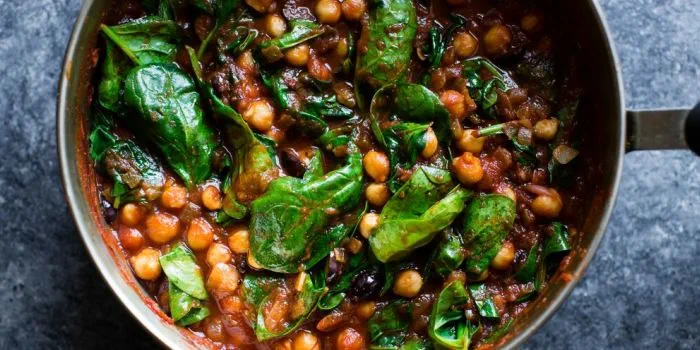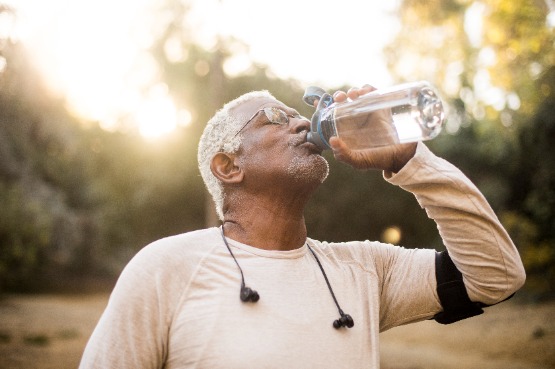Can your diet affect cystitis?
Cystitis is a common bladder condition that can feel uncomfortable, and make you want to pee more often than normal. In this article, I explore if your diet can affect how likely you are to get cystitis. I also discuss whether changing your diet can help if you’ve already been diagnosed with cystitis.

What is cystitis?
You might hear cystitis described as a bladder infection, or a urinary tract infection (UTI). Cystitis happens when your bladder is inflamed. This is usually because you have an infection in your bladder.
Cystitis is often mild and doesn’t tend to last long, but it can be unpleasant. Some people get this type of UTI once every few years, while others can get them every couple of months. Usually, infections are caused by bacteria from your bowel or skin entering your bladder. The bacteria can enter your bladder from your urethra (the tube where urine leaves the body from). Causes of cystitis include:
- having sex (often referred to as honeymoon cystitis)
- wiping back to front after going to the toilet
- frequent antibiotic use
- genetics (if your mother also had frequent UTI’s)
There is also a special type of cystitis called interstitial cystitis (also known as painful bladder syndrome). This is a condition that can cause a range of symptom, including bladder pain, pressure, and pelvic pain.
How is cystitis usually treated?
A doctor will usually test your urine to look for white or red blood cells. For simple infections without other symptoms, your doctor may advise you to wait before starting treatment. This is because your body can sometimes clear the infection without further treatment. However, a short course of antibiotics is also often prescribed.
Can what I eat, or drink prevent cystitis?
As cystitis is often caused by an infection, it’s a good idea to keep your immune system healthy. But you don’t need to buy special supplements. Despite some products claiming to boost your immune system, no foods, drinks, or vitamins can do this. But there are things you can eat and drink to help your immune system function normally.
You could include the following foods as part of a healthy and balanced diet.
- Red pepper, broccoli, and strawberries. These are high in Vitamin C which helps the immune system to do its job.
- Seafood, lamb, and pumpkin seeds – these are high in Zinc, which works together with Vitamin C for better immune function.
- Oily fish for immune supporting Vitamin D (you’ll need to take supplements from October -March in the UK).
- Live natural yoghurt, or other fermented food such as kimchi, sauerkraut, or miso. These may improve your gut health, which plays a role in your immune health too.
Overall, try to eat a balanced diet with plenty of wholegrains, lean proteins, and brightly coloured vegetables and fruits. These types of foods can help to keep you healthy. Try to reduce the amount of highly processed foods and excess sugar in your diet too if you can.
Does cranberry juice prevent cystitis?
There’s not much evidence that cranberry juice prevents cystitis. But some studies suggest that taking a supplement of D-Mannose (a type of natural sugar found in cranberries) may help to reduce your risk of cystitis. This is because D-Mannose ‘sticks’ to the bacteria that causes UTI’s. It can then leave your body through your urine, reducing your risk of getting ill.
Please see your doctor before starting any new supplements to check if they are suitable for you.
What should I eat or drink if I have cystitis?
There’s nothing specific to eat or drink if you are having an acute (sudden) episode of cystitis. Just continue with a healthy, balanced diet, and drink plenty of water. If you have been prescribed antibiotics, you may like to take a probiotic (live bacteria found in some yogurts) too – ideally at a different time of day. Some studies show this may help reduce any digestive problems.
Certain D-Mannose supplements can be increased during a flare up but check your product label carefully before doing so.
Some people find that avoiding certain foods and drinks can help to reduce the discomfort of having cystitis. This is because specific foods and drinks may irritate your already inflamed bladder. They can also sometimes make your urine more acidic, which can make you feel even more uncomfortable.
Foods and drinks to avoid or reduce include:
- coffee
- alcohol
- fizzy drinks
- acidic fruit juices (such as orange)
- spices
If you have the symptoms of cystitis, then see a doctor so you can get started on the right treatment. Drinking plenty of water, eating a balanced diet and taking D-mannose supplements can also help you to feel better.
Are you interested in learning more about your health? Discover more about our range of health assessments.
-
Sources Sources
- Bacterial cystitis: when to see a doctor. Lloyds pharmacy. www.onlinedoctor.lloydspharmacy.com, accessed 7 February 2023
- Urinary tract infections in adults. Patient professional. www.patient.info/doctor, edited 19 January 2022
- Urinary tract infections – in women – what causes it. NICE guidelines. Www.cck.nice.org, last revised September 2022
- Cystitis. NHS Inform. www.nhsinform.scot, accessed 7 February 2023
- Urinary tract infections. Age UK. www.ageuk.org.uk, accessed 7 February 2023
- Recurrent urinary tract infection. Patient professional. www.patient.info/doctor, edited 16 February 2022
- Interstitial cystitis. Patient professional. www.patient.info/doctor, edited 21 June 2021
- Ask the expert – boosting immunity. British Heart Foundation. www.bhf.org.uk, accessed 7 February 2023
- Vitamin C. Harvard school of public health. www.hsph.havard.edu, accessed 7 February 2023
- Zinc. National institutes of health. https://ods.od.nih.gov/factsheets, accessed 7 February 2023
- Vitamin D food fact sheet. www.bda.uk.com, accessed 7 February 2023
- Varsha K, Narisetty V, Brar K et al. Bioactive metabolites in functional and fermented foods and their role as immunity booster and anti viral innate mechanisms. J Food Sci Technol. 2022; 24 : 1–10.doi: 10.1007/s13197-022-05528-8
- Healthy eating resource. British dietetics association. www.bda.uk, accessed 7 February 2023. https://www.bda.uk.com/resource/healthy-eating.html
- Self help. Bladder Health UK. www.bladderhealthuk.org, accessed 7 February 2023
- Personal correspondence with Dr Sam Wild February 2023
About our health information
At Bupa we produce a wealth of free health information for you and your family. This is because we believe that trustworthy information is essential in helping you make better decisions about your health and wellbeing.
Our information has been awarded the PIF TICK for trustworthy health information. It also follows the principles of the The Information Standard.

More diet and nutrition articles
Did you find our advice helpful?
We’d love to hear what you think. Our short survey takes just a few minutes to complete and helps us to keep improving our healthy lifestyle articles.
Legal disclaimer
This information was published by Bupa's Health Content Team and is based on reputable sources of medical evidence. It has been reviewed by appropriate medical or clinical professionals and deemed accurate on the date of review. Photos are only for illustrative purposes and do not reflect every presentation of a condition.
Any information about a treatment or procedure is generic, and does not necessarily describe that treatment or procedure as delivered by Bupa or its associated providers.
The information contained on this page and in any third party websites referred to on this page is not intended nor implied to be a substitute for professional medical advice nor is it intended to be for medical diagnosis or treatment. Third party websites are not owned or controlled by Bupa and any individual may be able to access and post messages on them. Bupa is not responsible for the content or availability of these third party websites. We do not accept advertising on this page.







